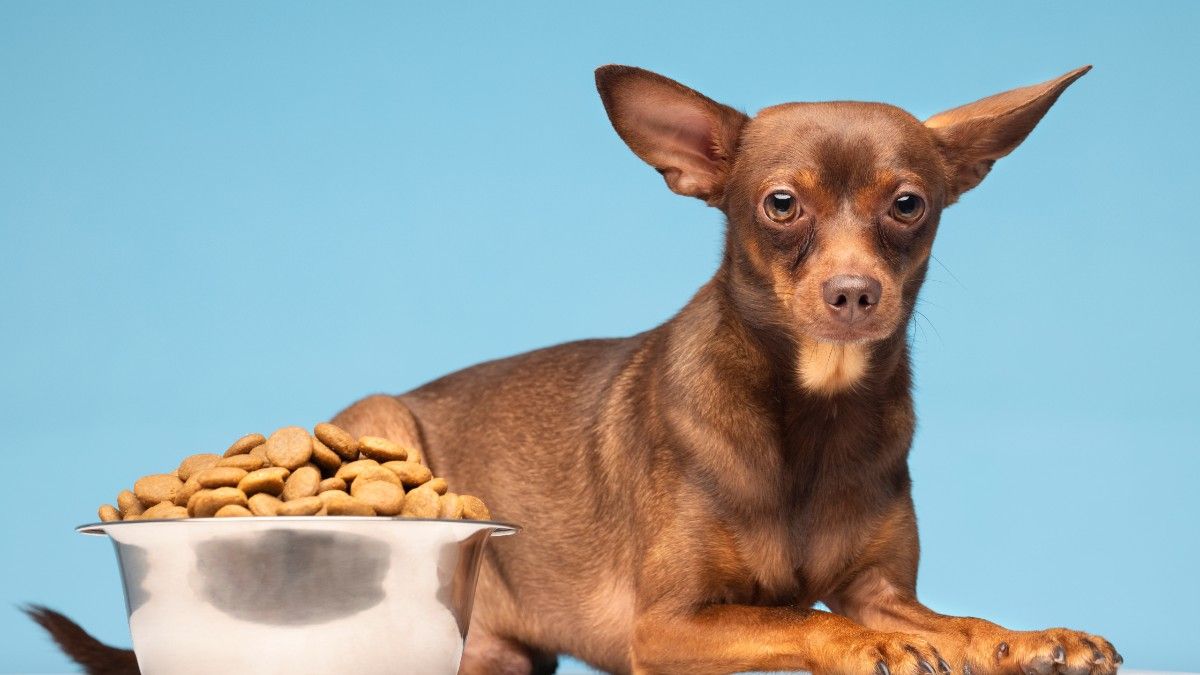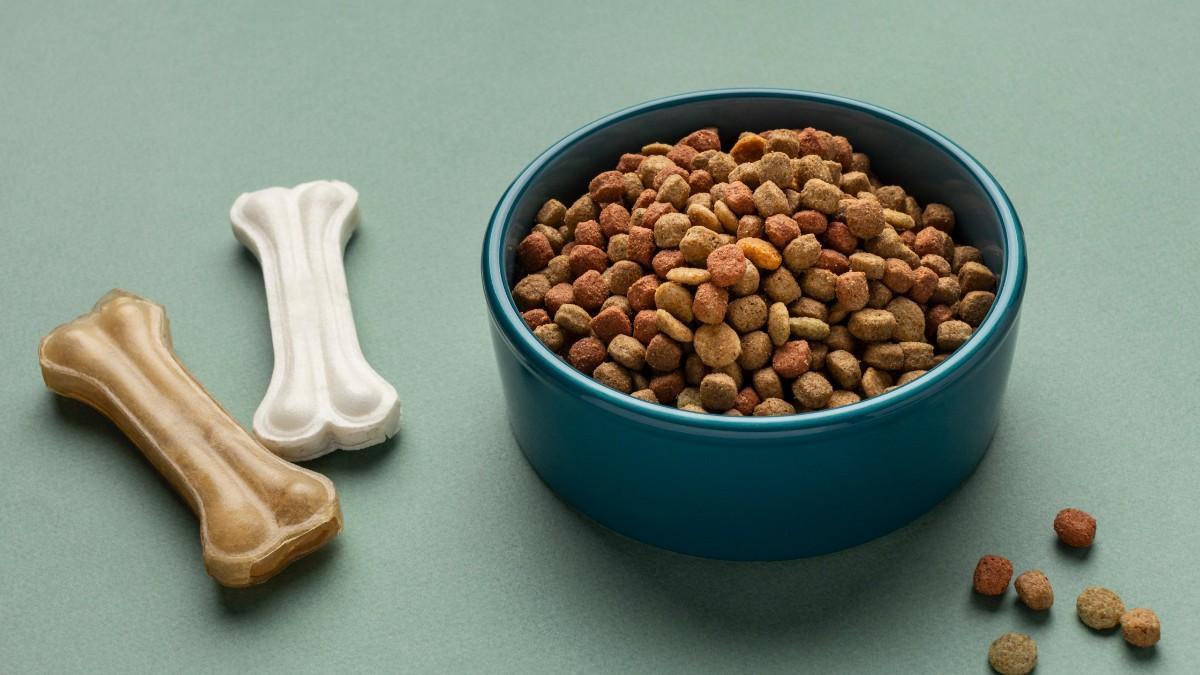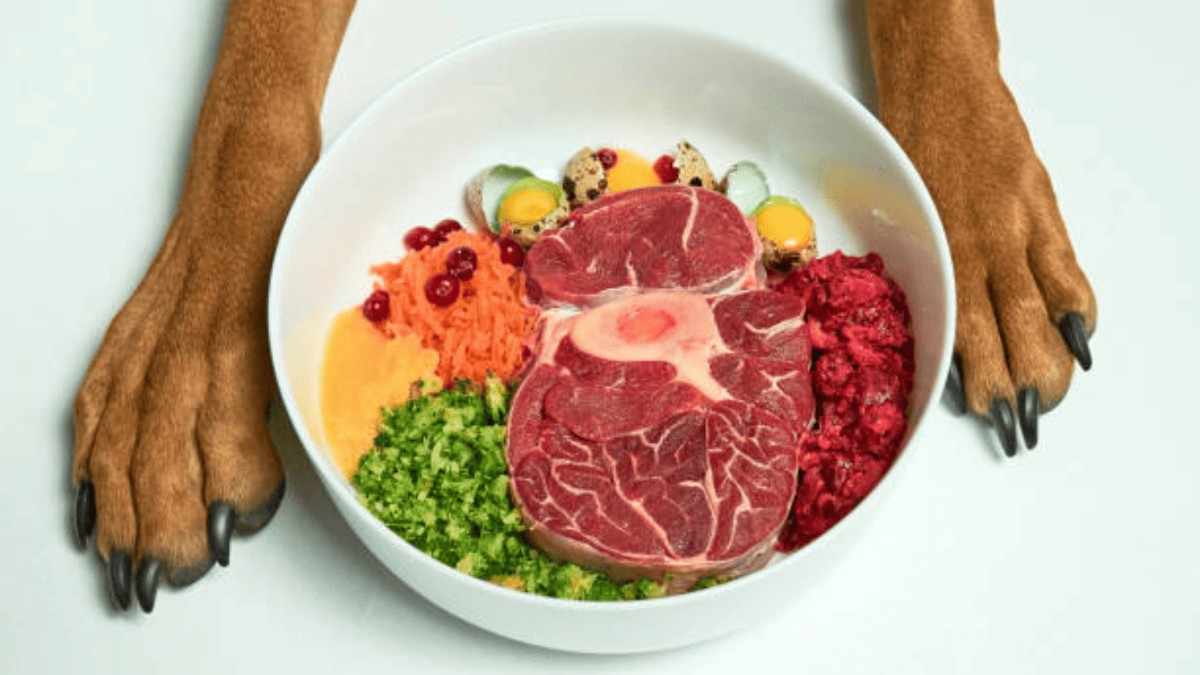Best Large Breed Dog Food for a Strong, Healthy Pup
As a devoted pet owner, one of your biggest responsibilities is choosing the best food for your large breed dog. These furry companions are not just pets, they’re family members who rely on you for their health, happiness, and longevity. For large breed dogs, a high-quality diet is more than just a meal; it’s the foundation for a long, healthy, and active life.
When you’re feeding a large breed, simply picking any bag from the store won’t do. Properly formulated meals are essential to provide good nutrition and prevent disease. From my own experience raising a Great Dane, I know how overwhelming it can feel when staring at countless choices on the shelves, each claiming to be the best dog food for large breeds.
That’s why experts emphasize understanding large dog nutrition before you make a decision. Your dog needs a complete and balanced diet, full of nutrients, vitamins, and minerals, to stay healthy from puppyhood through their golden years. Unlike small or medium breeds, large breed puppies require special diets to avoid health risks like orthopedic disease, obesity, and dog bloat. A high-quality dog food should combine protein, fiber, and carbohydrates from meats, grains, vegetables, and fruits, while meeting all nutritional standards. And don’t forget, always talk to your vet before switching diets or trying home-cooked meals, because your dog’s nutritional needs can change over time.
Why Large Breed Dogs Have Unique Nutritional Needs?
Large breed dogs, typically defined as those weighing over 50 pounds, have distinct dietary needs compared to smaller breeds. These big dogs don’t just eat more, they have different metabolic rates, growth patterns, and bone structures, which means their diet must be carefully managed to keep them healthy.
During puppyhood, large breed dogs experience rapid growth phases. If they grow too fast due to excessive calories, it can put unnecessary stress on developing bones and joints, leading to orthopedic problems such as hip dysplasia and elbow dysplasia. I learned this the hard way with my Great Dane, who developed joint stiffness because of overfeeding during his early months. The wrong diet can have lifelong consequences, so getting it right from day one is critical.
Another critical factor is caloric intake. Unlike smaller breeds that burn energy quickly, large breed puppies require controlled calories to prevent excessive growth, which can lead to skeletal deformities. Similarly, the balance of calcium and phosphorus is essential, too much calcium can harm bone health, while too little can slow proper growth.
Finally, large breed adult dogs are more prone to obesity, bloat, and joint issues, so their diet must support lean muscle, joint health, and digestive health without unnecessary fillers. Always choose the best dry dog food for large breeds that supports bone and joint health, meets nutritional standards, and is backed by AAFCO guidelines.
Key Nutrients in the Best Dog Food for Large Breeds
When selecting dry dog food for large breeds, the ingredient list is your best friend. The best dog foods for large dogs are not about trendy marketing claims, they’re about science-backed nutrition. Here’s what you should look for:
1. High-Quality Protein Sources
Protein is the building block for strong muscles. Look for real meat like chicken, beef, fish, or lamb as the first ingredient. Avoid foods with unnamed meat by-products or fillers. A high-protein diet ensures muscle development and energy support for your active pup.
2. Healthy Fats for Energy and Coat Health
Fats aren’t the enemy, they provide essential fatty acids like omega-3 and omega-6, which keep your dog’s coat shiny and skin healthy. Sources like fish oil and chicken fat are excellent.
3. Fiber for Digestion
Adequate fiber aids digestion, promotes regular bowel movements, and helps your dog maintain a healthy weight. Look for whole grains, sweet potatoes, and vegetables.
4. Joint-Supporting Nutrients
Glucosamine and chondroitin are game-changers for large breeds prone to joint issues. These nutrients support cartilage health and help prevent arthritis as your dog ages.
5. Balanced Minerals for Bone Health
The right ratio of calcium and phosphorus is essential to prevent skeletal issues. Avoid diets with excessive calcium, which can harm growing puppies.
Feeding Tips for Healthy Large Breed Dogs
Feeding a large breed dog is not about filling the bowl, it’s about feeding properly. Here are some expert-backed tips I’ve personally used with my dogs:
- Stick to Scheduled Meals: Feed two meals per day instead of free-feeding to avoid overeating.
- Measure Portions Accurately: Follow feeding guidelines on the package, but adjust based on your dog’s activity level.
- Avoid Overfeeding: Obesity puts extra pressure on joints, leading to orthopedic diseases.
- Watch for Bloat Risks: Large breeds are prone to bloat. Feed smaller portions and avoid intense exercise right after meals.
If you’re considering exploring home-cooked diets, talk to your vet first. A vet can help balance your dog’s nutritional needs and prevent nutrient deficiencies. Whether you choose a commercial diet or home-prepared meals, consistency and balance are key for a happier, healthier life.
Common Mistakes Dog Owners Make with Large Breeds
Even well-intentioned pet owners can make mistakes that affect their dog’s health. Here are some pitfalls to avoid:
- Choosing food based on price alone: Cheap foods often lack essential nutrients.
- Over-supplementing with calcium: Too much can harm bone growth.
- Feeding the same diet from puppyhood to adulthood: Nutritional needs change, puppies need controlled calories, adults need joint support.
- Ignoring portion control: Free-feeding is a recipe for obesity.
Dry vs. Wet Dog Food: Which is Better for Large Breeds?
Both dry and wet dog food have their benefits:
- Dry food is convenient, cost-effective, and promotes dental health.
- Wet food provides extra moisture, making it ideal for picky eaters or dogs with dental issues.
Many owners choose a combination of both for variety and nutrition.
Expert Tips for Choosing the Right Brand
- Look for brands that meet AAFCO standards.
- Avoid vague terms like “meat by-products” without source names.
- Opt for brands with transparency in sourcing and quality testing.
- Check reviews and consult your vet for personalized recommendations.
Final Thoughts
Finding the best large breed dog food isn’t just about what’s popular on the market, it’s about understanding your dog’s unique nutritional needs. From puppyhood to their golden years, a balanced, high-quality diet helps them live a long, healthy, and active life. Always check for essential nutrients, control portions, and talk to your vet when in doubt.
Remember, every large breed dog is different, so what works for one may not work for another. By focusing on proper nutrition, you’re giving your furry companion the best chance at a happier, healthier life.
Frequently Asked Questions (FAQs)
Q1: What is the best dog food for large breed dogs?
The best dog food for large breed dogs includes high-quality protein, balanced calcium and phosphorus, healthy fats like omega-3 and omega-6, and joint-supporting nutrients such as glucosamine and chondroitin.
Q2: How often should I feed my large breed dog?
Most large breed dogs do well with two meals per day. Avoid free-feeding, as it can lead to obesity and increase the risk of bloat.
Q3: Can I give homemade food to my large dog?
Yes, but always consult your vet first. A home-cooked diet must be carefully balanced to meet your dog’s nutritional needs and avoid deficiencies.
Q4: Why do large breed puppies need special food?
Large breed puppies grow rapidly and need controlled calories and balanced minerals to prevent bone and joint problems like hip dysplasia.




Post Comment